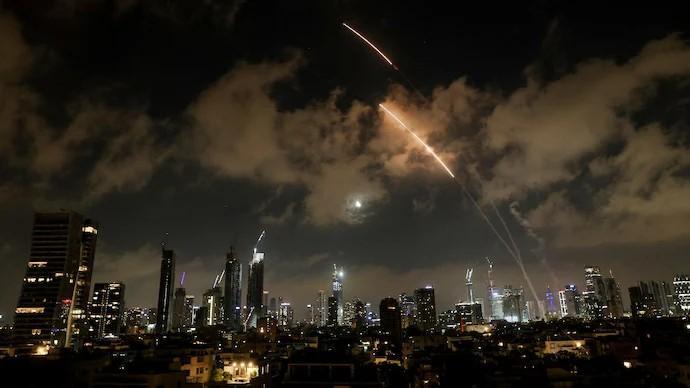
Title: War with Iran costing Israel ₹1,700 crore per day: Report
As the conflict between Israel and Iran continues to escalate, the financial implications of this war are beginning to take center stage. According to early assessments reported by The Wall Street Journal (WSJ), Israel’s war with Iran is costing the country an estimated $200 million (over ₹1,700 crore) per day. This staggering figure has raised concerns about the sustainability of the conflict and the pressure is mounting for a swift end to the fighting.
The most expensive aspect of the war is the interception of Iranian missiles, as reported by WSJ. Israel’s defense systems, such as David’s Sling and Arrow 3, have been activated repeatedly to counter the Iranian missile attacks. Each interception costs between $700,000 and $4 million, adding up to a significant expense for the Israeli government.
David’s Sling, a missile defense system developed by Israel’s Rafael Advanced Defense Systems, is designed to intercept medium-range rockets and cruise missiles. Arrow 3, on the other hand, is a long-range missile defense system developed by Israel’s Aerospace Industries and is capable of intercepting ballistic missiles.
The high cost of intercepting Iranian missiles is a major concern for Israel, as it strains the country’s resources and puts a significant burden on its economy. The estimated daily cost of the war is equivalent to about 10% of Israel’s annual defense budget. This means that the country will have to divert a significant portion of its resources away from other important areas, such as education, healthcare, and infrastructure development.
The financial implications of the war are not limited to the cost of intercepting missiles. The conflict has also disrupted Israel’s economy, causing inflation to rise and the value of the Israeli shekel to decline. The war has also led to a decline in tourism and foreign investment, further exacerbating the economic challenges facing the country.
The pressure is mounting on Israel’s government to find a swift end to the conflict. The country’s economy is already feeling the strain, and a prolonged war could have devastating consequences. The Israeli government is under pressure to find a solution that balances its security needs with its economic interests.
In recent days, there have been signs of a possible de-escalation in the conflict. Iran has reportedly scaled back its missile attacks on Israel, and there have been reports of secret talks between the two countries. While it is unclear whether these talks will lead to a permanent ceasefire, they do suggest that both sides are looking for a way to reduce tensions and avoid further conflict.
In conclusion, the war between Israel and Iran is not only a security crisis but also an economic one. The estimated daily cost of the war is staggering, and the financial implications are already being felt. The pressure is mounting on Israel’s government to find a swift end to the conflict, and there are signs that both sides are looking for a way to reduce tensions and avoid further violence. Only time will tell whether a lasting peace can be achieved, but one thing is clear: the economic cost of this war is unsustainable and must be addressed.
News Source:
https://www.aa.com.tr/en/middle-east/israel-s-war-with-iran-costs-200m-a-day-raising-pressure-for-swift-end/3605431






